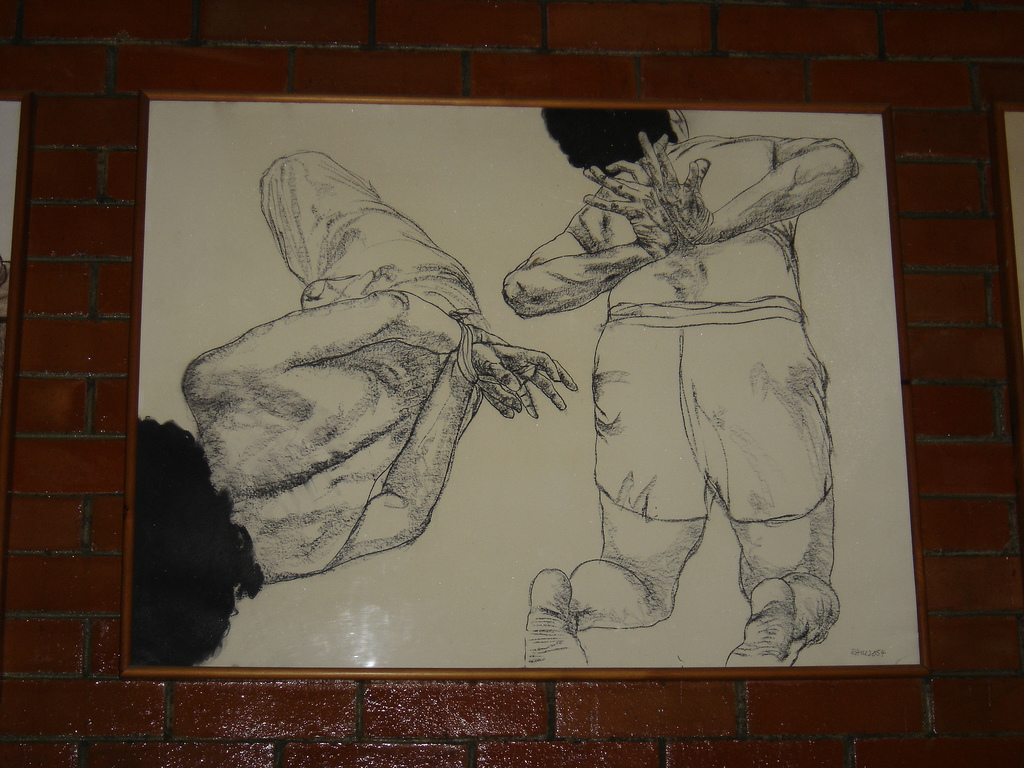 We can tend to imagine Christmas as a time when God comes down to the earth like an alien descending from the sky, changing forever our understanding of ourselves and the universe. In other words, we picture Jesus as a foreigner, an outsider. In one way that is true – all creatures born on this planet are strangers at first and must learn about and discover the world. On the other hand, God is no stranger to God’s own creation. The Incarnation proves this truth. Either way, Christmas, for many of us, can become a brief moment in time when God took on flesh. Jesus is zapped down to earth in human form and taken away 33 years later (Weirdly, I am writing this just as I have completed my 33rd year). But the idea of incarnation is more than that.
We can tend to imagine Christmas as a time when God comes down to the earth like an alien descending from the sky, changing forever our understanding of ourselves and the universe. In other words, we picture Jesus as a foreigner, an outsider. In one way that is true – all creatures born on this planet are strangers at first and must learn about and discover the world. On the other hand, God is no stranger to God’s own creation. The Incarnation proves this truth. Either way, Christmas, for many of us, can become a brief moment in time when God took on flesh. Jesus is zapped down to earth in human form and taken away 33 years later (Weirdly, I am writing this just as I have completed my 33rd year). But the idea of incarnation is more than that.
Incarnation is most formally the embodiment of God in the person of Jesus Christ. But we are the Body of Christ! Just because the person of Jesus can no longer be found on earth doesn’t mean God is no longer incarnate. Indeed, as the Body of Christ, we are the embodiment of God. We make God incarnate. We give God flesh in the world. This is done through our work, the care for our families, the use of our talents, our creativity, our volunteering, and our prayer. Just as Mary had a role in bringing God into the world, we also share in that role.
God reaches us, in a real way, through the real things of our lives. When I was sick the other day, my wife brought me a cool cloth for my forehead. Her action was an act of love. God cared for me—touched me—through her. When I allow myself to listen deeply to someone in spiritual direction, I am allowing God to become incarnate in me, to enter lovingly into the life of the other person. Louis Savary says, “A primary reason for incarnation is that God wanted to reveal to us that everything God created in the universe—literally every thing and every process—is sacred and holy and lives in Christ.” Christmas carries with it many meanings, which may change for each of us depending on our life circumstances at a particular time, but the Incarnation ultimately was to shift humanity’s mindset about God. It wasn’t that God became closer to us through the Incarnation, it was to remind us that God was already close to us. It wasn’t that the created universe became sacred when Jesus arrived, it was to remind us that creation was already sacred. Christmas wasn’t to tell us that God started loving us differently, but that God had already loved us infinitely from the beginning of time. It took an event like the Incarnation to shake up—shake off—our old ways of thinking.
So as we celebrate the Christmas season, let each day remind us that God has already been present and fleshy in each of us, through all we do, all the ways we love, and all the ways we give of ourselves. The Incarnation of God on earth lives and unfolds in each of us. That is our Christian call. The Christmas message for us is that we must remind our sisters and brothers—everyone we encounter—that Love is closer than they think.
For more on this idea of giving God flesh in the world, read my book God Moments: Unexpected Encounters in the Ordinary.
Learn more and register for the January 22-25 Online Busy Person’s Retreat at BeckyEldredge.com.
Listen to the podcast version of this post…









Trackbacks/Pingbacks